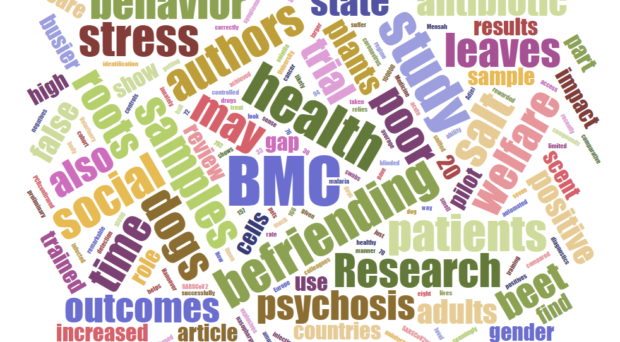
BMC Psychology – How to respond to a pandemic: Keep calm and stay at home?

In an interesting analysis, researchers from Technical University in Munich and the University of Cambridge investigated the difference in the response to COVID-19 pandemic between Germany and UK residents. Their findings (published now in BMC Psychology) highlight a striking discrepancy how responders from both countries rated the impact of the pandemic on their financial situation as well as their personal outlook: While German participants reported a lower impact in terms of loss of work and income, they were less hopeful that the pandemic would end soon compared with British participants.
Overall, both populations showed an increase in symptoms of mental illnesses, most prominently depression and anxieties, induced or worsened by the pandemic. This alarming increase calls for a better public awareness of mental health and mental illness as well as better access to help in both countries.
The comparison between Germany and the UK is particularly interesting because both countries are economically and culturally very similar. However, the initial response to the pandemic differed between both countries, with Germany locking down considerably earlier than the UK, which has been shown to have impacted number of deaths.
As the data for this study was collected during the first lockdown in both countries (April/May 2020) it will be interesting to see how the mental health response has changed over the course of the pandemic.
BMC Medical Ethics – Research integrity, misconduct and consequences
Research ethics is a hot topic not only in the science community but is also garnering wide-spread attention among the public. Especially in recent years, cases of prominent researchers suspected of misconduct have been highly publicised across news outlets.

In a recent study published in BMC Medical Ethics, researchers from Hungary, Ireland, the UK and Norway collected and analysed data concerning cases of research misconduct available in scientific journals. Interestingly, the field of natural sciences (41.5%) was found to have the most cases in relation to number of publications in the field, followed by health and medical sciences (25.1%) and engineering (22%).
The most prevalent misconduct category was fabrication and falsification of data with non-adherence to pertinent laws such as informed consent and ethics approval ranking second. Additionally, the researchers assessed the consequences for research misconduct finding paper retraction (45.4%) and exclusion from funding applications (35.5%) to be the most common sanctions.
The authors of this study further criticise that retraction notices often do not contain sufficient detail, thus impeding transparency of the retraction process. Comprehensive analyses such as this study guide the research community in finding ways to prevent misconduct and upholding research integrity standards.
Clinical trials aimed to investigate treatment options for specific illnesses often do not recruit from populations with high prevalence of the respective disease.

This geographical mismatch affects both the quality of care and the validity or generalisability of results and funding bodies are working towards a more equal distribution. Researchers and funding bodies are becoming increasingly aware of these issues, prompting researchers from the University of Oxford to investigate why this mismatch exists and how chief investigators (CIs) of clinical trials can be supported to achieve a more equitable distribution.
The results of their qualitative study have now been published in BMC Medical Research Methodology revealing that the main factors in site selection for CIs is to ensure a successful trial procedure and the risk associated with choosing less research-active sites. Mainly, CIs are conscious of potential issues with patient recruitment and retention and are concerned with the effect a less successful trial might have on their reputation and future funding opportunities. This often leads to CIs selecting sites where they have a personal contact or with which they have collaborated in the past, thereby perpetuating this system of inequity.
The authors suggest strategies to mitigate these perceived risk factors and incentivise chief investigators to align their research sites with the location of disease prevalence while highlighting the benefits experienced by CIs who have previously ‘broken the mould’.
BMC Research Notes – Reforesting our planet using nitrogen-fixing legumes
Awareness of the importance of the tropical rain forests and forests in general for our global climate has grown over the last few years and forest restoration is crucial in our efforts to prevent a climate crisis.
Reforestation programmes are on the rise, but a main hindrance to restoring a diverse plant life are often depleted soils that have lost nutrients and minerals through monocultural farming.

Here, Brazilian researchers present data on the use of different legume plants in restoration efforts, published now in BMC Research Notes. Nitrogen-fixing legumes are a useful tool to restore soils and offer a good basis for second-generation plants, but the process is often slow.
By measuring biomass growth of reforestation blocks treated with different fertilisation regimens, the researchers were able to show a fundamental role for additional fertilisation during the early stages of plantation development.
These findings will be important for policymakers in setting up strategies to mitigate global warming and retrieve carbon from our atmosphere using natural fixation by plants.

Attention-Deficit/Hyperactivity Disorder (ADHD) is a common neurodevelopmental disorder leading to learning disabilities or social dysfunction in affected children with symptoms often lasting into adulthood.
Previous research has shown that children with ADHD often have lower serum levels of vitamin D and magnesium, but few studies have been conducted to assess the effect of vitamin D/magnesium supplementation on behavioural issues of children diagnosed with ADHD.
In a study published in BMC Pediatrics Hemamy and colleagues present data from a randomised, placebo-controlled trial investigating the effect of vitamin D/Mg supplementation on Iranian children with ADHD. Interestingly, the researchers find significant improvement in several behavioural variables including emotional and peer problems, where children in the treatment group scored significantly better than those receiving a placebo.
This research lays the groundwork for bigger clinical trials investigating the impact of vitamin D and magnesium on the behaviour of children with ADHD as well as the underlying physiological mechanism leading to potentially new treatment recommendations.
Comments